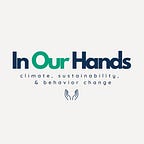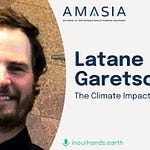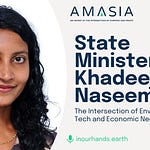In this episode of In Our Hands, Ramanan Raghavendran speaks with Nigel Sizer, executive director of the Preventing Pandemics at the Source Initiative, former president of the Rainforest Alliance, and global director of the Forests Program at the World Resources Institute. Sizer is also an ecology, forest climate change, and development policy expert.
They discuss the connection between pandemics and climate change, emphasizing the risks posed by deforestation and the wildlife trade. This episode sheds light on the urgent need to address these issues to prevent future pandemics.
Click above for the full transcript. This episode is also available on Apple Podcasts and Spotify.
In Our Hands is a production of Amasia. Follow these links for more about our firm, the Amasia blog, our climate fiction podcast, and Ramanan’s blog.
Highlights
(01:47) From Cambridge Ecologist to Global Pandemic Prevention Leader
(09:52) Debunking COVID-19 Lab Origin Theories
(16:15) Pandemics, Politics, and Climate Change Interconnections
(23:20) Preventing Pandemics by Protecting Natural Habitats and Regulating Animal Agriculture
(25:50) What Should We Be Focusing On?
(29:38) Assessing the Most Threatened Rainforest Regions Globally
(32:33) Pandemic Preparedness and the Challenges of Political Leadership











